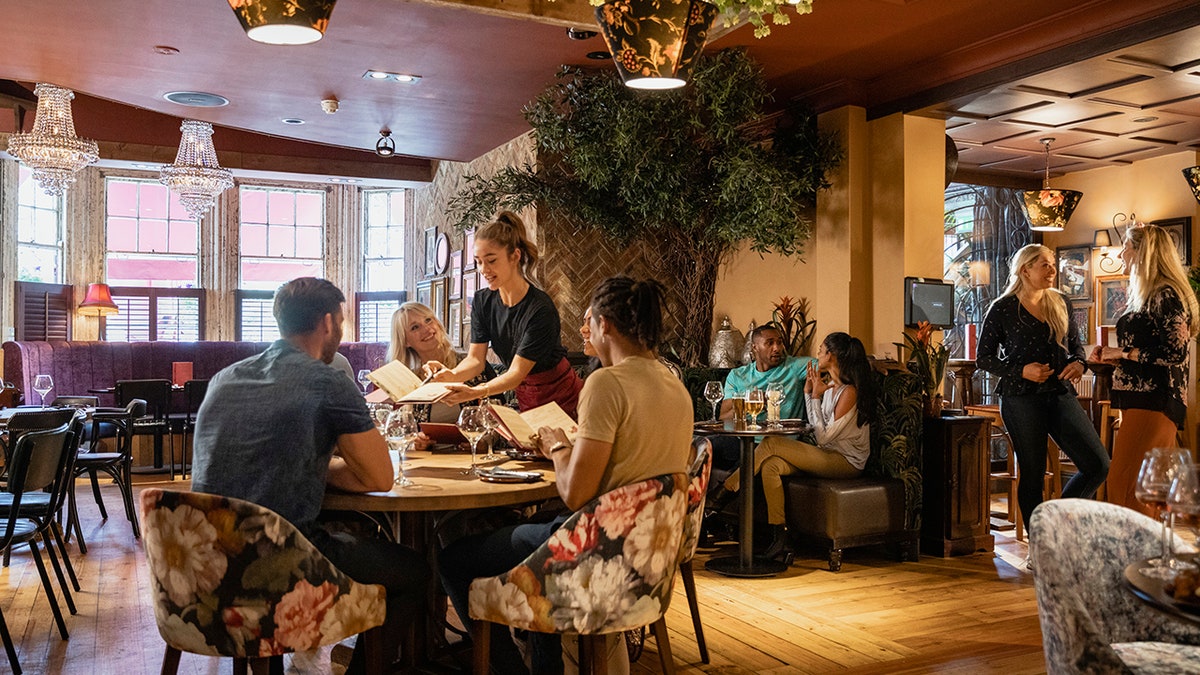Restaurants dealing with rising food costs
Anna Maria Oyster Bar owner John Horne provides insight on ‘Your World.’
Good help is hard to find for NYC’s super-rich. Thanks to last year’s lockdown, when domestic workers were frequently asked to quarantine alongside their deep-pocketed employers, staffers ranging from chefs to butlers are now in short supply.
Those domestic workers not living year-round with their employers are now demanding high salaries — with high-qualified nannies now making as much as $150,000 a year, not including bonuses — staffing agencies told The Post.
"We have people who want fancy restaurant dinners with multiple courses, elaborate dishes and the best wines [at home]," said Mohamed Elzomor, a co-founder of Nines, which charges members an initiation fee ranging from $10,000 to $20,000 plus a 15% fee for every year that they hire one of their highly trained workers.
"We even have a person who cooked for the Qatari royal family and gets paid more than $200,000 a year," he said.

A wide shot of people dining at a restaurant in Newcastle-upon-Tyne.
But as the new live-in dynamic persists, a more stringent social relationship has emerged between the havers and doers.
"Pre-COVID, even the pickiest people didn’t pay that much attention to tiny details like how the corners of the sheets on their beds were folded or if the bacon was semi-crispy or very crispy," said David Crimmins, the owner of Crimmins Residential Staffing, which trains the residential staff of the ruling class — charging $1,500 a day for coaching from a former helper of the British royal family. "Now, they have a lot more time [at home] and are more agitated than they have been. They notice every little thing."
They also scrutinize their staff like never before. Nines promises that their employees have been through a rigorous vetting process that includes personality tests and background checks as well as training on how to accommodate any whim or fancy.
Naturally, the latest request is for domestic help that are vaccinated. However, all of the agency heads said that spoke to The Post said that they cannot make vaccination a requirement for their workers — giving those who voluntarily vaccinate a hiring advantage.
"It’s not something we could or would want to mandate because it’s a personal choice," said Elzomor.
GEORGIA WOMAN WANTED IN LITTLE CAESARS ATTACK REAMINS AT LARGE, SHERFF SAYS
But domestic service is a two-way street: agencies said that staffers are in turn carefully scrutinizing potential employers and turning down offers if they’re not an exact fit.
"They’re OK waiting for the right gig because they know they’re in high demand and will get one," Crimmins said, noting that employers are not only paying more but making concessions.
For instance, employers have become more amenable to hiring live-in help who come with family in tow. Greenberg shared the anecdote of a nanny who moved to her new employer’s home in the Hudson Valley with her teenage son and their dog.
"For the right help, they’re willing to accommodate," he said.
CLICK HERE TO GET THE FOX NEWS APP
But Seth Norman Greenberg, marketing director for the staffing agency Pavilion, warns that too much togetherness is a powder keg.
"Given that they’re constantly around each other, the boundaries have become blurred," said Greenberg. "They’re sharing holidays and birthdays and eating meals together … I’ve seen employees and employers get burnt out and need a break from each other."
To avoid the fatigue of living 24/7 with their staff, Crimmins added that some of his agency’s clients try not to see their cleaners and cooks at all.
"They live in these huge homes and will be in another area when the housekeeper is cleaning," he said. "All the communication is orchestrated through a butler. It’s like they’re invisible."
Click here to read more of the New York Post.










































